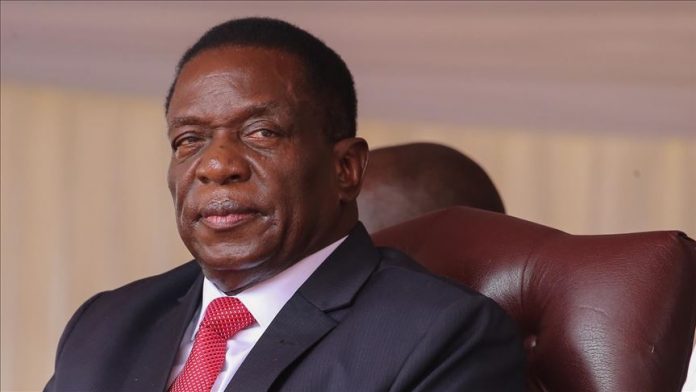Sydney Kawadza
Zimbabwe is slowly improving its governance systems according to the latest results from the Ibrahim Index of African Governance (IIAG) which have seen the country ranked among the five most improved nations over the last decade.
The Mo Ibrahim Foundation defines governance as the provision of political, social, economic and environmental public goods and services that every citizen has the right to expect from their government, and that a government has the responsibility to deliver to its citizens.
Published since 2007, the IIAG assesses governance performance in 54 African countries over the latest available ten-year period while providing a framework and dashboard for any interested audience to assess the delivery of public goods and services and public policy outcomes in African countries.
The IIAG also constitutes the most comprehensive dataset measuring African governance, providing scores and trends for African countries on a whole spectrum of thematic governance dimensions, from security to justice, to rights and economic opportunity, to health and environment.
According to the report released recently, Zimbabwe, ranked 33rd, with a percentage score of 46 percent, +7.4 improvement during the 2010 to 2019 and featured among the five most improved African countries over the decade.
The report, however, said the trends showcased across the continent do not tell the full story adding that although the gap between the top and bottom ranked countries has been closing over the last decade, on average countries’ governance performances are more dispersed in 2019 than they were a decade ago.
“However, this positive trend remains fragile. Twelve countries have already displayed warning signs, as their overall positive trend for the decade has been jeopardised by a decline in the last five years,” the report adds.
Zimbabwe recorded improvements in the categories of Human Development; Foundations for Economic Development and Security & Rule of Law while a “red flag” was raised over issues to do with Participation, Rights and Inclusion.
According to the IIAG, Zimbabwe is the most improved country over the decade in the category of Foundations for Economic Development, with an increase of +19.5 between 2010 and 2019, although it is still ranked at a modest 29th position among the 54 countries.
The segment looks at sectors such as public administration, business environment, infrastructure and the rural sector with Zimbabwe scoring a 47.2 percent increment in the category.
“Most improved country over 10 year period (+49.4), driven mostly by improved land and water access for the rural poor,” the IIAG said.
Zimbabwe embarked on a controversial but effective fast-track land reform programme that reportedly gave more than 300 000 households access to prime agricultural land that was held by a few minority white farmers.
President Munagangwa’s government has also been making concerted efforts to improve access to water for the resettled farmers and rural communities by drilling boreholes and construction of dams in these areas.
Zimbabwe was ranked highly at 20th position in the Human Development category with a score of 54.9, an improvement by +5.3, judged on its provision of health, education, social protection and sustainable development.
But the IIAG noted some warning signs in the category noting increased deterioration in education probably owing to the problems being faced in the sector.
The warning signs could be linked to the disruptive job actions in the health and education sector where staff is constantly on industrial action while the general populace is having difficulties in finding disposal income to access most of the provisions in the category.
Zimbabwe, according to the IIAG, has seen increasing improvement in the security and rule of law category although registering a below average 46.4 percent (+6.9) in the results.
The category looks at such issues as security and safety, rule of law and justice, accountability and transparency and anti-corruption.
The country has been on an anti-corruption drive which has netted some top government officials including ministers although there are concerns over the rate of conviction for the arrested perpetrators.
Government has also been on the ropes in issues covered in this category and many Zimbabweans would go against the IIAG’s findings on the reported improvement with no tangible results recorded on the ground.
In the IIAG report, Zimbabwe is among 29 countries that has seen an increased deterioration going down -1.9 to recording a lowly 36 percent to be placed on the 38th position among the 54 African countries.
“The Participation, Rights & Inclusion category raises the most concerns, with more than half (29) of African countries having followed a negative trajectory in both the ten-year and five-year periods, and at an even faster pace over the latter,” the report said.
Zimbabwe has experienced increasingly tumultuous times in the sector covering participation, rights, inclusion and equality and gender.










